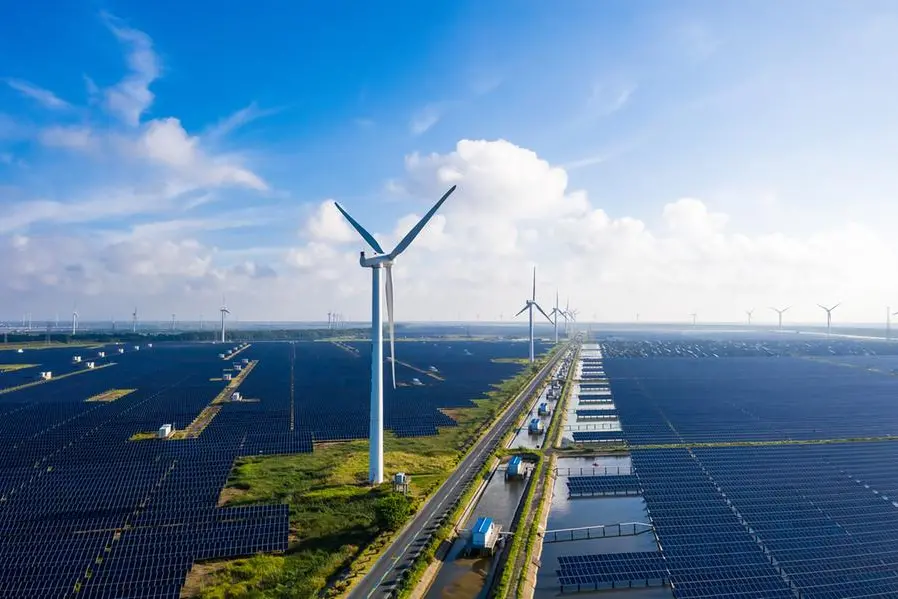PHOTO
(The opinions expressed here are those of the author, a columnist for Reuters.)
LITTLETON, Colorado - Turkey has spent eight of the first nine months of 2024 as Europe's largest producer of coal-fired electricity, overtaking Germany and Poland as it cranked coal burning for power.
Turkey generated a record 88 terawatt hours (TWh) of electricity from coal during January through September, according to energy think tank Ember, which was 2% more than during the same period in 2023.
That total was 28% above the 69 TWh generated in Germany and 36% above the 65 TWh generated in Poland, Europe's next largest coal-fired power producers.
With power systems across Northern Europe set to make further cuts to coal use in power generation going forward, Turkey's lead in Europe looks set widen, and may establish southern Europe as a major hub for coal use in the region.
EMISSIONS IMPACT
Turkey's emissions from coal-fired power also scaled new highs so far in 2024, hitting 88.4 million tons of carbon dioxide and 1.5 million tons more than in the same months last year.
Coal-fired emissions in Germany were 71.5 million tons of CO2, and were 67 million tons in Poland, which in both cases were the lowest on record for the January to September period.
With coal-fired generation and emissions declining in most other European nations, Turkey's share of the region's coal-fired use and emissions climbed to a record of just over 19% so far this year, Ember data shows.
Continued coal burning during the winter - when demand for heating in Turkey peaks - may push Turkey's share of regional emissions above 20% for the first time, especially if power systems elsewhere continue to curb coal use during that period.
IMPORT RELIANCE
Around 35% of Turkey's electricity so far this year was generated from coal, which was the country's largest single power fuel source.
That share was down from around 37% in 2023, due to higher output this year from both hydro dams and solar farms which allowed power firms to lift output from clean energy sources.
However, both hydro and solar output are set to fall to their annual lows over the coming winter in Turkey, which will force power suppliers to boost coal use towards year-end to meet system demand.
And Turkey has to import coal to meet roughly 40% of its coal-fired needs, due to a persistent shortfall in domestic coal supply compared to domestic coal demand.
Over the first nine months of 2024, Turkey's total coal imports were 16.7 million metric tons, according to ship-tracking data from Kpler.
That total is 5% less than during the same months in 2023, but volumes are likely to climb over the final months of the year as power firms stock up ahead of peak heating demand.
Russia is Turkey's main coal supplier, accounting for around 70% of Turkey's coal imports, followed by Colombia, Australia and the United States.
RISING DEMAND
Turkey's dependence on coal for 35% of its electricity is greater than the 20% share in Germany and 13% share for Europe as a whole, but is less than the 56 % coal-share in Poland.
However, Poland's coal share is down from close to 74% in 2022, and looks set to continue falling rapidly as Poland's power firms deploy growing volumes of renewable power across the country's grids.
In contrast, Turkey's reliance on coal for power looks set to keep rising, especially as the country's total power demand continues to rise more quickly than power firms can lift clean supplies.
So far in 2024, Turkey's electricity demand has climbed by 5% from the same months in 2023, compared to 2.4% growth for Europe as a whole, 3% growth in Poland and 0.4% growth in Germany.
Over the longer term, Turkey's electricity demand growth has outpaced peer nations by an even larger degree.
Turkey's electricity demand has grown by 13.3% since 2019, which contrasts sharply with a 1.7% contraction in electricity demand for Europe over the same period, and an 8.2% contraction in demand in Germany.
Continued growth in Turkey's export-oriented manufacturing economy looks set to maintain pressure on power firms to keep developing cheap energy supplies.
However, Turkey's private sector has high levels of foreign debt that look set to keep company spending in check, and may mean that only limited upgrades to power generation systems may be seen over the near term.
That suggests that coal's place as Turkey's main power source may continue to grow over the near to medium term, and will likely result in the country further widening its coal usage lead over nations elsewhere in Europe.
(Reporting by Gavin Maguire; Editing by Sonali Paul)





















